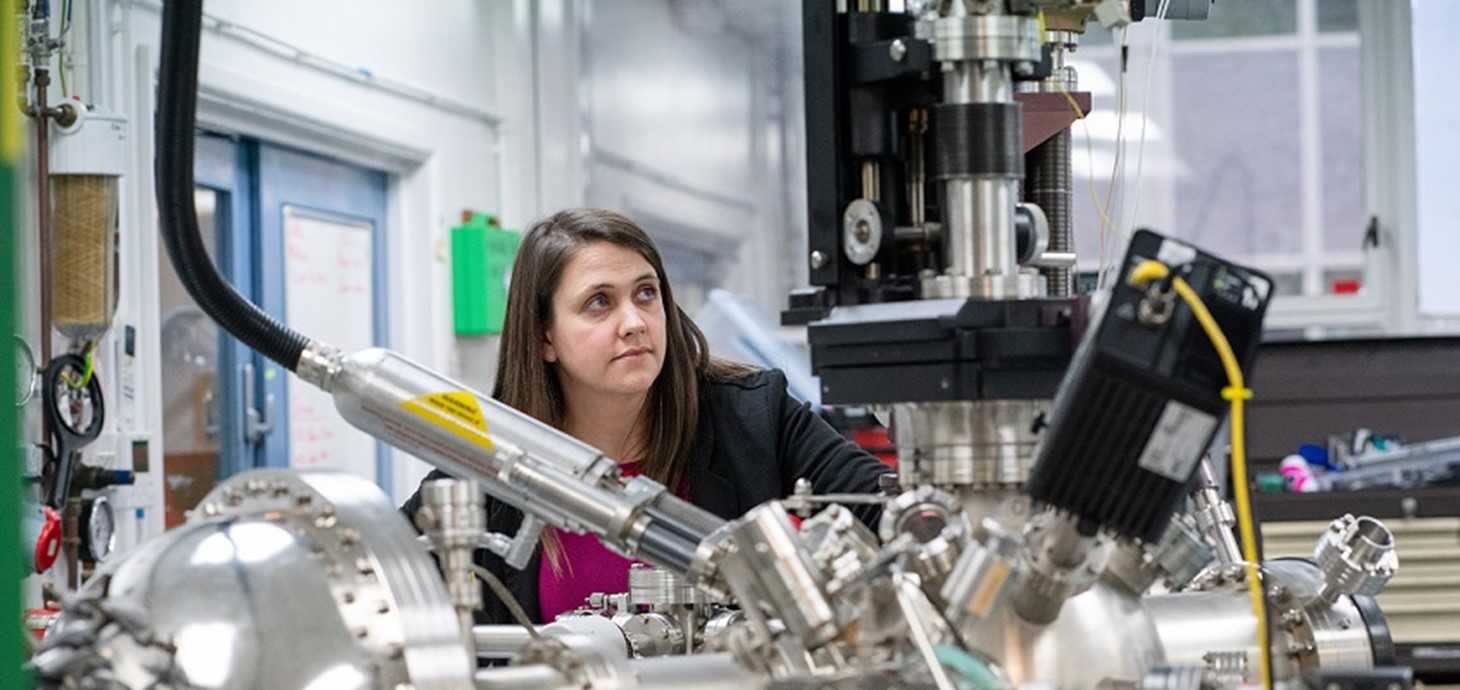These articles are now archived and will no longer be updated.

Dr Rachel Cross of Aberystwyth University conducting X-Ray photoelectron spectroscopy on solar thin films
Wales can remain at the forefront of next generation solar energy technology, for applications such as remote sensors and electric vehicles, thanks to £2.5 million of EU funding announced by the Welsh Government, to continue a Swansea-led research programme.
The funding will extend SPARC, the Solar Photovoltaic Academic Research Consortium, which involves solar experts from six research centres across Wales. It is led by Swansea University’s Centre for Solar Energy Research, with Bangor and Aberystwyth universities as partners.
SPARC has already been running for five years, with a £7.2 million budget. This new funding, from the European Regional Development Fund, will allow the work to be extended – as SPARC II - until March 2023.
SPARC’s aim is to build research capacity in solar photovoltaic technology, which is indispensable in moving towards a low-carbon green economy. Its research focuses on new applications, including mobile products, aircraft and the space industry.
The programme helps unlock further inward investment to Wales through additional large-scale research and development with multinational companies and specialist manufacturers.
Welsh businesses in the solar energy industry also benefit from manufacturing opportunities and access to the world-class research and expertise being developed at universities in Wales.
Counsel General and Minister for European Transition Jeremy Miles said;
“This investment is another boost not only for our world class research sector but also for our focus on renewable energy as part of our effort to address the climate emergency.
“It will make a significant contribution to growing Wales’s reputation among global companies as a centre of excellence for collaborative research and development, as well as create new opportunities for our own solar energy businesses.”
Professor Stuart Irvine of Swansea University, SPARC II Project Director, said:
“The £2.5M, 27-month extension is testament to the pioneering research being carried out by the six research centres across Wales that make up the SPARC II centre.
This extension will enable the team to expand this research capability to take on new challenges such as new solar technology to charge electric vehicles, power remote sensors and enable a new generation of more efficient solar conversion devices.
I am very excited about the opportunities enabled by this additional WEFO funding and to working with our very talented research teams across Wales to unlock new technology opportunities for a low carbon future.”
